Welcome to Do Not Depart! Be sure to subscribe to the Do Not Depart RSS feed or email updates to receive regular encouragement and tools to abide in God's Word.
Is your goal to become more familiar with God’s story as a whole? Go wide in your study.
Is your goal to personally connect with God through one passage? Go deep.
But with either direction, go directly to the source.
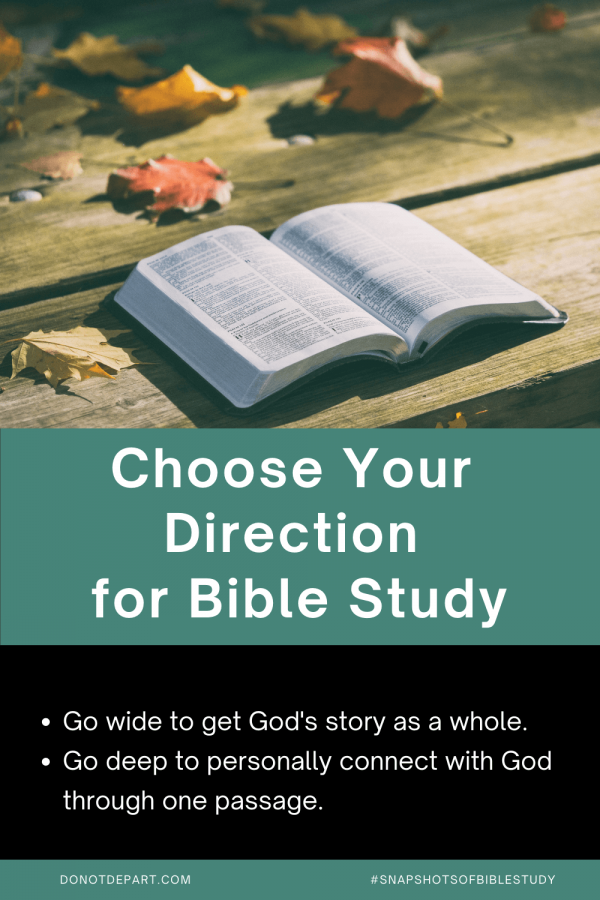
Sometimes we make it sound so simple. But knowing how to study our Bibles can feel complicated. The Bible is a collection of 66 different books, written in different styles by possibly 40 different authors over a time span of approximately 1,500 years.
Add to that complexity, your own personal time crunch, waxing and waning interest, and occasional lack of focus. It’s no wonder that studying our Bibles gets shoved further down our to-do lists.
But it doesn’t have to be that way.
Here are two different ways to approach Bible study to help you stay motivated. And resources to equip you for it. Not just to learn scriptures, but most importantly, to find life in Jesus through them.
“You search the Scriptures because you think that in them you have eternal life; and it is they that bear witness about me, yet you refuse to come to me that you may have life.”
John 5:39-40
As I said here about why we read it again and again, the more we read the Bible, the more we see God. And the more we see God, the more we love God.
We can never get too much Love.
1. Go Wide
Because the Bible has a long reach and is full of details, keep the overall picture in mind.
At its most basic, the Bible is a love story of God’s encounters with people. Becoming familiar with these stories leads us to become familiar with God. That’s the goal: knowing God, not just the stories.
ONE LINE EACH
Here are two sites to help you see the complete picture in one place, with one line for each of the 66 books.
- All 66 Books of the Bible in One-Sentence Summaries – OverviewBible.com
- A Summary of Each Bible Book – Blue Letter Bible
READ IT ALL
To go wide, I like to read through the entire Bible every two or three years. It takes me that long because (a) I don’t like to rush through it, and (b) I don’t want to overtask myself with very long readings each day.
Here is a 2-year Bible reading plan that I’ve used for several years.
It’s not dated so you can start anytime. It’s 5 days a week; no weekends. It alternates with two weeks of readings in the Old Testament and one week in the New Testament so you never get too bogged down in long stories about wars or genealogies, for example.
The plan is a chronological reading, not a straight line from Genesis to Revelation. When you’re reading from the Gospels, for example, you’ll read Luke’s version of Jesus’s birth in Luke 1 and 2 on Monday and Tuesday, then read the same story written by Matthew in Matthew 1-2 on Wednesday.
Another tip: use a different translation each time you read through the Bible. It keeps the words fresh. Otherwise we can become so familiar with the story that we miss details. But with different wording, our attention stays fresh.
Don’t rush through your Bible, but do keep moving to get the whole story. There are numerous great reading plans available. Find one that works for you.
2. Go Deep
But we don’t need only to skim through the stories. Save some time to dig deep, one verse at a time. And sometimes one word at a time.
When I memorize scripture for our Bible Memory Challenges, I appreciate having weeks to sit with the same verses again and again.
Here’s my daily plan for studying one verse a week. I’d love to hear in the comments how you approach in-depth studies.
1. ORIGINAL LANGUAGES
First, I take a couple of minutes to look at each word in the verse in its original language. But I don’t know Greek or Hebrew, so I use E-Sword.net.
E-Sword is a digital tool that makes it very easy to see original meanings, adding much nuance to understanding. E-Sword is a downloadable app that is free for your PC or for a small fee for Mac or smart phone. The tools it provides are endless.
It’s my one-stop resource for original languages, commentaries, study notes, Bible translations, concordances, and more.
Download a Word Study Sheet here.
2. READ COMMENTARIES
The next day, I read various commentaries about the verse. When we listen to what others think, it broadens our own understanding. Be discerning with what you read, but also be open. Just as practicing our religion isn’t a solitary activity, neither is our Bible study. Learn from others. Spend as little or as much time as you want to. I use the free commentaries I downloaded on E-Sword, but you can use commentaries or study Bibles or even other online resources, such as:
3. GET CREATIVE
On the third day, I diagram the verse and listen to songs about it. It allows the message to sink into my heart through different avenues (see Jaime’s post on scribbles and doodles). The Spirit works in mysterious ways, not only through written words.
I am currently listening to songs on Matthew 7 for our memorization challenge on the Fighter Verses app.
4. JOURNAL ABOUT IT
On the fourth day, I journal and pray through the verse. Interacting with God’s truths sometimes requires a wrestling. It is personal. God is active in the process. It’s not just a head exercise but a heart practice.
5. SHARE IT
Then the fifth day, I recite the words to someone else (or at least out loud to myself). Again, God’s message isn’t static on a page; it is alive and needs to be practiced to be fully transformative.
Do I do this every week with every verse? Certainly not. I fail more than I succeed.
But it helps me to work a plan, even for only a few minutes a day. Without a plan, I’d accomplish even less.
Engage Scripture to Find Christ
So how should YOU study the Bible? That’s for you and God to decide.
Your relationship with the Lord is as unique as you are. Let’s not pass judgment on each other for our styles.
But rather let’s encourage each other to value time spent with God through scripture, through experiences with Him, and through discussions with each other about Him, however that looks.
Keep the ultimate goal in mind: Engage scripture to find Christ. Allow it to transform you to love God more and love others more (Matthew 22:37-39), not to become a scholar or a Bible know-it-all, (after all, even Satan could quote scripture). As Paul warned us, knowledge puffs up, but love builds up (1 Corinthians 8:1).
May your Bible study fill you up in God’s love, both wide and deep.
Here’s a printable with the tools mentioned.
See all of the posts in our Lifelong Learners series here. We’ll be adding more posts throughout the month of October.
- Are you a daily Bible reader?
- Do you have a favorite Bible study tool?
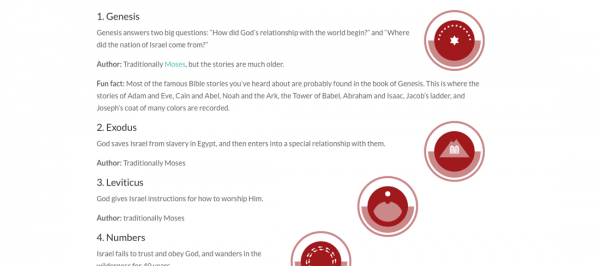
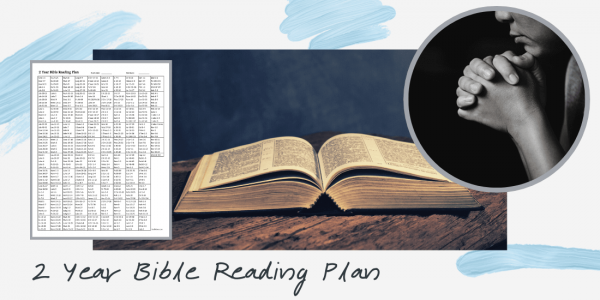
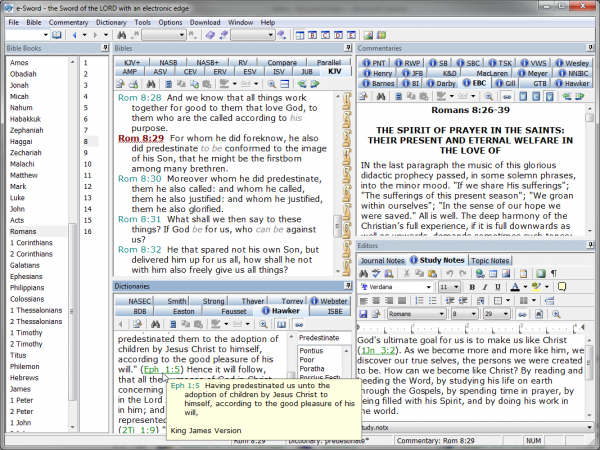
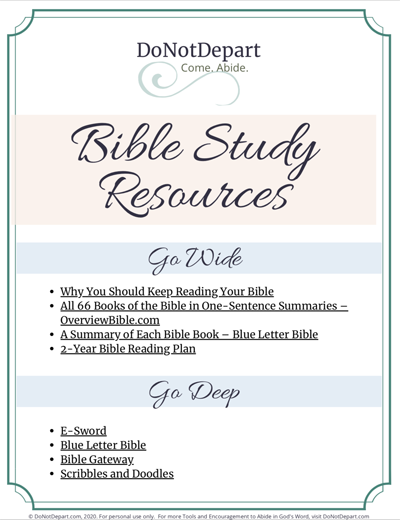

Lisa, I love what you’ve shared here today about going both wide and deep with Bible study. I use the 52 Week Bible Reading Plan for my daily study, and am currently on my fifth year of reading the Bible all the way through. I used to read on Bible Gateway so I could engage in different versions, but am now sticking with The Jesus Bible, which includes reflections and commentaries on the scripture. I’m finding it so rewarding! I just might have to try a more in-depth approach now and again, though.
Blessings!
That’s awesome that you’re on your fifth year of reading through the Bible, Martha. I’m glad you mentioned about The Jesus Bible; I’m not familiar with that one. I’m looking for a different one for my next go-through, so I’ll have to look into that. Blessings to you, too!
Thanks for the resources! Some were new to me. I love that we can do both the wide and deep kinds of Bible reading. I think it helps to do both. I like the way you’ve incorporated both. There are things you see in each way that you don’t in the other.
One thing I’ve done when reading the Bible through is to take a break between books of the Bible and go through a short, more in-depth study of another Bible book. Then I’ll switch back to my overview reading.
BTW, I still can’t comment here on my computer —my virus protection says the site is infected. It has been updated but still blocks the site, so I guess there’s some glitch. But I can comment on my phone or tablet.
That sounds like a wonderful approach to switch back and forth between the two types. It would keep it fresh and keep you exposed to the benefits of both types of study. Thanks for sharing that, Barbara!
I’m sorry you’re still having trouble with the site, but glad it still works normally on your phone and tablet. I don’t understand how all that works. My computer won’t let me add to linkups on Safari, but it works fine in Chrome. I’ve changed settings as much as I know how to do, but still won’t work. Sometimes my computer “protection” feels like it works against me. ha.
This has been so helpful, Lisa. I have been thinking about reading through chronologically in order to reinforce my foundation. I did these several years ago but did not journal, I think I will add a bit of journaling into my reading journey this time around.
thank you for the thoughts and tips!
It’s a great idea to journal as well, Linda! I used to do that regularly, but the past year I’ve only been reading. Journaling definitely helps it stick better and reminds you to make it personal.
I am in the process of going wide right now, reading through the whole Bible in an edition I have never read before (The Message). I am reading the Psalms right now. When I read some posts, I am missing going deep with one verse. I guess FOMO is a real thing! Thank you for the good resources. I am going to check them out.
I’m currently reading through The Message as well! I do love its clarity. Psalms is the only book in the Bible that I really don’t like in The Message though because it strips some of the beauty out of it for me. But nonetheless, I love it for everything else for just reading through.
Lisa, this was a terrific post, I enjoyed the contrast between going ‘wide” and going “deep”. I used to read through the Bible every year, but have backed off to every two years for much the same reasons as you mentioned. When I do read through I alter between a chronological reading and a couple different ways of mixing things up. Like Barbara mentioned, when I am doing that I also go deep on another book of the Bible. I like to study in depth and split my reading times to morning and evening. Great resources on the original languages-that is something I think gives such depth and understanding to a passage. We tend to approach the Bible from a Western cultural view, and getting back to the original language can give you the correct perspective. Thank you, Lisa, lots of good stuff here!
Thanks, Donna. You remind me there is a book I’ve been meaning to read about seeing it only through our Western lenses and how we need to change that. Do you have a favorite resource that has helped you approach the Bible from its original perspective?
I am a daily Bible reader and my current daily reading is Romans. I am decidedly /not/ studying but using it as a period of quiet and rest. I love BibleHub (which used to be just bible.cc?): if I find a passage I want to ponder over or learn, I always first try to put together an English translation of my own, comparing the different translations there and exploring the Greek or Hebrew.
I am going wide next year (maybe start over Christmas) with the Old Testament. A plan would be a good idea. Did you do that 2-year schedule yourself? That is very clever.
OK, 17 months for the OT not including the Psalms and Proverbs (will do a separate plan for them). Basically, the first year is the Torah and the histories, and the last six months is the poetry and prophecies (though one of my main problems is how the prophecies relate to the histories – are the prophecies all later?).
Spreadsheet: https://lukesgospel739.wordpress.com/ot-books/
Data source: https://holyword.church/miscellaneous-resources/how-many-words-in-each-book-of-the-bible/
What an interesting look at how many words are in the Bible. Being a word geek, stats like that are fun to me.
Many of the events written about in the prophecies occurred at the same time as the events written in the histories. Tidbit: You may already know this, but the divisions of 5 Major Prophets and 12 Minor Prophets are only categorized as such by their length, not by their importance. I always found that confusing because “major” sounds so much more important. ;) I’m excited for your journey! You pick up keen insights that I love to hear about.
That blog is a bit of a treasure trove, I had to drag myself away.
I confess I didn’t know any of that about the prophets. I’ll see if I can tally up the prophets with the histories. I’m getting excited about the journey too now :) thank you for your encouragement. I’ll post updates (somewhere). I love reading about other people’s favourite verses.
It’s lovely that you’re reading through as a period of quiet. It allows the Spirit to sink into places that might be missed if you were searching for facts and intellectual consent only. I’d forgotten about BibleHub so I’m glad you added that resource here as well. And putting together your own translation is a wonderful exercise! I wonder if you’re writing those down?
I came up with the two-year schedule through combining and tweaking various plans already out there. I didn’t originate it on my own; I’m not that clever. :)
Yes, exactly: it’s like opening a doorway to feel the Spirit near me.
My “translations” are like your schedule perhaps. The only time I can think of right now that made more than cosmetic changes was Psalm 91:3. The last phrase is translated into English as things like “… and from the deadly pestilence”, but the word translated as “deadly” (“perilous”, etc.) is in Hebrew (a) a noun, and (b) translated in other Psalms as “perverse things”, “wickedness”, etc. So I used “… and from the pestilence of desire”. Not very nice English perhaps but reminds me of the meaning under the surface.
Four of the Psalms are 14 verses long and I have a fantasy about doing versions of them as sonnets, especially Psalm 19.
…”from the pestilence of desire” broadens the meaning to include lots of scenarios we may suffer from; I like your interpretation. Do share if you create sonnets. Inquiring minds would want to know (or is that just a phrase we say in the States?). :)
Lisa,
I am a daily reader – I find I HAVE to be in His Word with the way our world is going! I’m on my forth read-throughh of the Bible and this time the worlds are just leaping off the page to me in a way they never have before. I’ve been especially captivated with prophecy (no wonder since it comprises 30% of the Bible). Enjoyed your tips on going both wide and deep.
Blessings,
Bev xx
I’m always encouraged by others who are so enthusiastic in their Bible readings. Thanks for sharing this, Bev! I’m glad you’re sharing what you’re seeing in the prophecies with us at your blog.
Lisa, this is good and fresh insight to go wide and go deep in the study of God’s Word. And I like the thought of doing both and not settling for one or the other. Thank you!
It is nice to switch back and forth with our Bible study, as we do with other things as well. I don’t watch a lot of TV, but I like to balance between hour-longer drama series and 30-minute sitcoms, depending on my mood and attention span. :)
Hey Lisa, thank you for this reminder. I tend to get locked into my routines and “shoulds.” I needed this reminder that I can choose my own adventure, so to speak. Some days my brain is wired for wide. Some days I want to dig deep. I need to be OK and give myself the freedom to do both.
I love your admonition at the end. Whether I’m going wide or deep, that ultimate goal is to be filled with God’s love.
I love how you phrase it, Jed: choose your own adventure. I can even lock myself into routines within routines, so giving myself permission to mix it up is necessary; otherwise I’m prone to becoming a box-checker. (Although, there have been times when box-checking has saved me! It’s kept me in a healthy routine of behavior until the heart clicked back into place, if that makes sense.) :)
This is the first time I’ve read through the whole Bible and I am loving the new understanding God is giving me!
Yay for you, Rebecca! First time or fiftieth time, there are always new things to discover! I have new questions for God each time. :) And we bring our current life experiences into it each time as well, so it stays fresh.
such a good place for resources, Lisa! I have loved seasons of reading through the Bible as well as seasons of depth and pondering portions that bring much healing. Right now I am taking a slow walk through the book of John. I often use biblegateway.com as well as biblehub.com
A slow walk through John sounds delightful, Mariel! It’s probably my favorite of the four Gospels.
Deep & Wide. Yes!